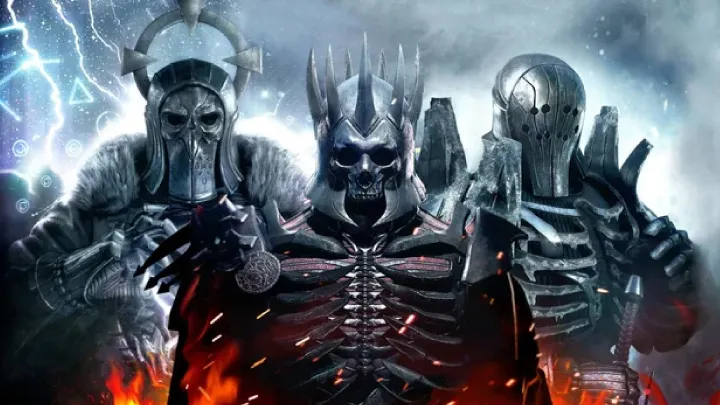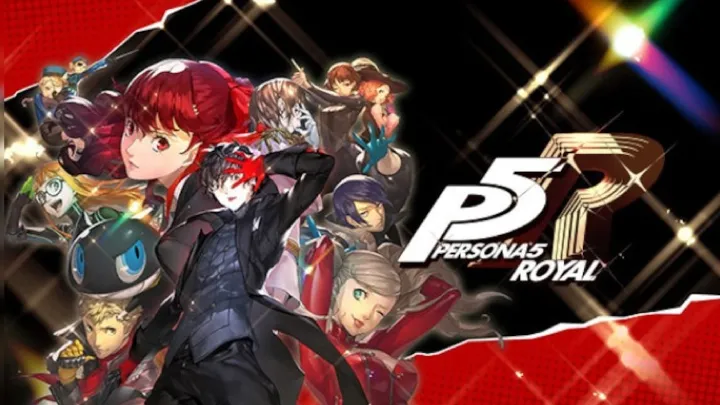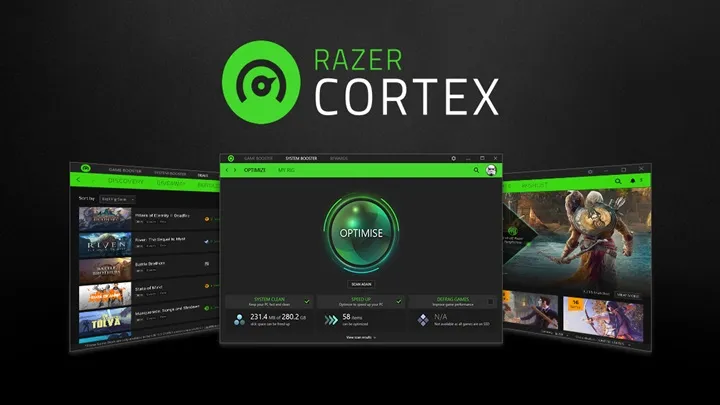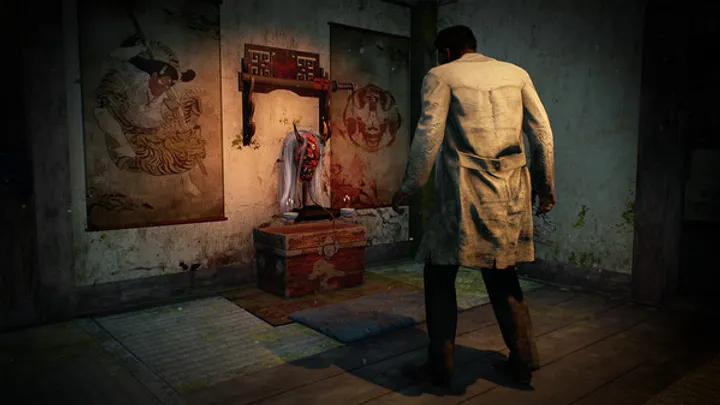Introduction
Role-Playing Games (RPGs) have stood as one of the most influential genres in the gaming world. Unlike action games that focus primarily on reflexes, or puzzle games that challenge the intellect, RPGs invite players into carefully crafted worlds where choice, character growth, and storytelling take center stage. The genre has evolved dramatically over the decades—from tabletop inspirations like Dungeons & Dragons to pixelated classics on consoles, and now into massive open worlds that stretch as far as imagination allows.
What sets RPGs apart is their ability to blend narrative depth with gameplay flexibility. In an RPG, you are not just playing a character—you are becoming the character. You choose how they speak, fight, love, and grow. Whether it is the bleak lands of Dark Souls, the futuristic settings of Mass Effect, or the vibrant modern-day Japan of Persona 5, RPGs immerse players by offering both agency and emotional investment.
This article explores ten of the greatest RPGs of all time, each of which has left a permanent mark on the genre and redefined what it means to play a role.
1. The Witcher 3: Wild Hunt
Gameplay
The Witcher 3 is often hailed as the pinnacle of open-world RPG design. Released in 2015 by CD Projekt Red, it combined a massive, visually stunning world with responsive combat and meaningful choices. Players step into the shoes of Geralt of Rivia, a monster hunter navigating war-torn kingdoms, treacherous swamps, and bustling cities. Unlike many RPGs, The Witcher 3 never overwhelms with meaningless fetch quests—each side mission feels hand-crafted and rich with story.
Storytelling
The narrative depth of The Witcher 3 is unmatched. From Geralt’s personal quest to find Ciri, to the political entanglements of the Northern Realms, the game weaves a web of morally complex choices. Characters like Yennefer, Triss, and Dandelion are not simply NPCs but fully fleshed-out figures who feel alive. Decisions carry weight—sometimes forcing players to pause and reflect, knowing the outcome could alter the world in permanent ways.
Legacy
With expansions like Hearts of Stone and Blood and Wine, The Witcher 3 cemented itself as one of the greatest RPGs ever. Its influence can be seen in modern open-world games that attempt to balance freedom with narrative quality. Few titles have achieved such a harmonious blend of exploration, storytelling, and player choice.
2. The Elder Scrolls V: Skyrim
Gameplay
Released in 2011 by Bethesda, Skyrim became a cultural phenomenon almost overnight. Its sprawling open world, filled with mountains, dungeons, and ancient ruins, gave players unprecedented freedom. Unlike linear RPGs, Skyrim lets you decide your destiny—be it Dragonborn savior, stealthy assassin, or simple wanderer. The game’s modding community also extended its lifespan, allowing fans to continuously reimagine the world with new quests, graphics, and mechanics.
Storytelling
At its heart, Skyrim is about prophecy, dragons, and ancient magic. Yet what players often remember most is not the main storyline but the countless smaller adventures—helping a farmer reclaim his land, uncovering the mystery of a haunted barrow, or accidentally transforming into a vampire. Its world feels alive, with random encounters and dynamic systems ensuring no two playthroughs are alike.
Legacy
Few games have had the staying power of Skyrim. More than a decade later, it remains a staple of RPG discussions, re-released on nearly every platform imaginable. It represents the ideal of player freedom—proof that sometimes the journey matters more than the destination.
3. Final Fantasy VII
Gameplay
When Final Fantasy VII launched in 1997 for the PlayStation, it redefined what RPGs could be. With its hybrid combat system blending real-time elements with turn-based strategy, it offered depth without alienating newcomers. The materia system allowed deep customization, making every party unique.
Storytelling
Few stories in gaming are as iconic as Final Fantasy VII. Players follow Cloud Strife, a mercenary entangled in a battle against the sinister Shinra Corporation and the unforgettable villain Sephiroth. Themes of environmental destruction, identity, and loss give the story resonance even decades later. The infamous death of Aerith remains one of the most emotionally impactful moments in video game history.
Legacy
More than just a game, Final Fantasy VII became a cultural landmark. Its recent remake has reignited passion, introducing the world to a new generation of gamers. It is the RPG that proved games could tell stories as compelling as any film or novel.
4. Mass Effect 2
Gameplay
Bioware’s Mass Effect 2 (2010) blended action-packed shooting mechanics with RPG depth. The game refined the first installment’s systems, making combat smoother while maintaining rich dialogue and character progression. Players controlled Commander Shepard on a desperate mission to save the galaxy, recruiting a diverse crew along the way.
Storytelling
What makes Mass Effect 2 special is its loyalty system. Every squadmate had their own arc, and their survival in the final mission depended on player choices. From the mysterious assassin Thane to the explosive Jack, each character felt real, with strengths, flaws, and stories to tell. The “Suicide Mission” ending remains one of the most tense and rewarding climaxes in RPG history.
Legacy
Mass Effect 2 showed how player choice could truly shape the narrative. It wasn’t just about winning battles but earning the trust of your companions. It set the bar for future narrative-driven RPGs, cementing Bioware’s reputation as masters of storytelling.
5. Persona 5
Gameplay
Released in 2016, Persona 5 offered a unique twist on RPGs by combining dungeon crawling with life simulation. Players live the double life of a Tokyo high school student by day and Phantom Thief by night. Combat uses a turn-based system with strategic emphasis on exploiting enemy weaknesses, while the life-sim aspect allows players to build relationships, manage time, and grow socially.
Storytelling
At its core, Persona 5 is a story of rebellion—teenagers fighting against societal corruption. Its stylish visuals, jazzy soundtrack, and relatable characters make it one of the most unique RPGs ever created. Every member of the Phantom Thieves has a deeply personal reason for fighting, adding emotional weight to their journey.
Legacy
Persona 5 brought Japanese RPGs back into the global spotlight. Its blend of modern style and traditional RPG mechanics showed that innovation could coexist with genre traditions. It has since spawned spin-offs, adaptations, and an enduring fanbase.
Conclusion
RPGs continue to stand as the beating heart of gaming, blending immersive storytelling, strategic gameplay, and personal growth in ways few other genres can match. From the breathtaking open worlds of The Witcher 3 and Skyrim, to the emotional journeys of Final Fantasy VII and Persona 5, each title offers players something unique yet timeless—an invitation to step into another life, make difficult choices, and shape destinies.
What unites these games is not just their mechanics, but the sense of belonging they create. Players don’t just control a hero; they become the hero, living through victories, losses, and unforgettable adventures. As technology advances and new generations of RPGs emerge, the essence of the genre remains: giving us worlds to explore, stories to cherish, and characters who stay with us long after the credits roll.
RPGs will always be more than just games—they are journeys, legends, and personal stories woven into digital form.

















